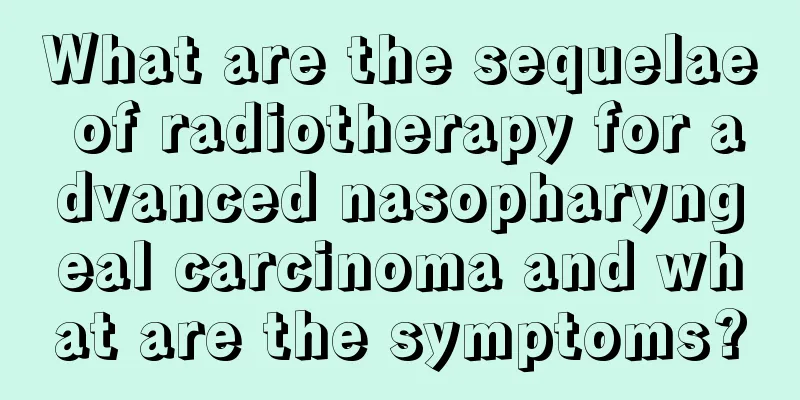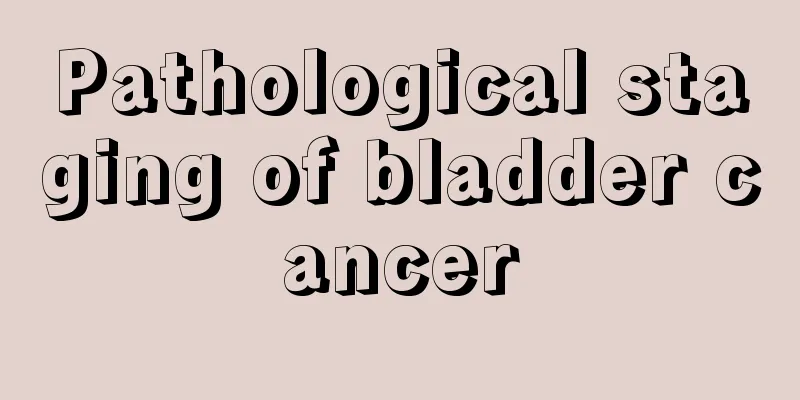What are the sequelae of radiotherapy for advanced nasopharyngeal carcinoma and what are the symptoms?

|
What are the sequelae of radiotherapy for advanced nasopharyngeal carcinoma? What are the symptoms? Advanced nasopharyngeal cancer often invades the optic nerve near the visual chiasm, causing decreased vision, nasal or temporal blindness, and can cause blindness in one or both eyes. Fundus examination reveals optic nerve atrophy. The nerve has a long course and is located in an area that is easily invaded by nasopharyngeal cancer. It is often invaded early, causing diplopia. The eyes cannot move and are esotropia. The sequelae of radiotherapy for advanced nasopharyngeal carcinoma are: 1. Systemic reactions: including fatigue, dizziness, loss of appetite, nausea, vomiting, no taste or smell changes in the mouth, insomnia or drowsiness, etc. Some patients may experience blood changes, especially leukopenia. Although the degree varies, it can usually be overcome and completed with symptomatic treatment. If necessary, take vitamin B1, B6, C, metoclopramide, etc. If the white blood cell count drops to less than 3×109, the child should suspend radiotherapy. 2. Local reactions: including skin, mucous membranes and salivary glands. Skin reactions are dry dermatitis or even wet dermatitis, and 0.1% ice talcum powder or lanolin can be used topically as a base anti-inflammatory ointment. Mucosal reactions are manifested as congestion, edema, exudation and accumulation of secretions in the nasopharyngeal and oropharyngeal mucosa, and mouthwash and lubricating anti-inflammatory agents can be used topically. In a few patients, the swelling of the parotid glands may gradually subside after 2Gy of parotid gland irradiation. When irradiated with 40Gy, saliva secretion is significantly reduced, oral mucosal secretion is increased, and the mucosa is congested and swollen. The patient has dry mouth and difficulty eating. Excessive irradiation of the parotid gland should be avoided. 3. Radiotherapy sequelae: mainly include temporomandibular joint dysfunction, soft tissue atrophy and fibrosis, radiation-induced caries, radiation-induced mandibular osteomyelitis and radiation-induced encephalomyelopathy. |
<<: Can early and middle stage breast cancer be cured?
>>: What fruit is best for bladder cancer?
Recommend
Effects of chemotherapy on ovarian cancer
European scholars have conducted relevant clinica...
How to care for patients with ovarian tumors
Ovarian tumor is one of the common tumors of fema...
Which fruit has the lowest calories
The calories contained in fruits are usually not ...
How should patients with ovarian tumors eat properly after surgery
Ovarian tumors are a common disease among women, ...
The efficacy and function of walnut shell
Everyone has eaten walnuts, and we all know that ...
How is interventional treatment of bladder tumors performed?
There are many treatments for bladder tumors, and...
Why do I feel my breasts swell during puberty
During puberty, the thymus develops relatively qu...
How can cirrhosis be cured?
Cirrhosis is a chronic disease. The causes of cir...
What do you experience from massaging your ears every day for a year?
In daily life, if there is no discomfort in the e...
What is the shelf life of frozen milk?
When babies are young, their digestive systems ar...
Which department should I go to in the hospital to see for osteosarcoma
It is inevitable to see a doctor in life. No one ...
How to take care of a drunk husband
In life, there are many men who come home after d...
How to remove the blackening of the toilet edge
With the development of our social economy and ev...
5 Ways to Regulate Estrogen Balance
Estrogen is the source of female beauty and youth...
Can I eat fish maw if I suffer from high blood pressure?
Modern people attach great importance to nourishi...









